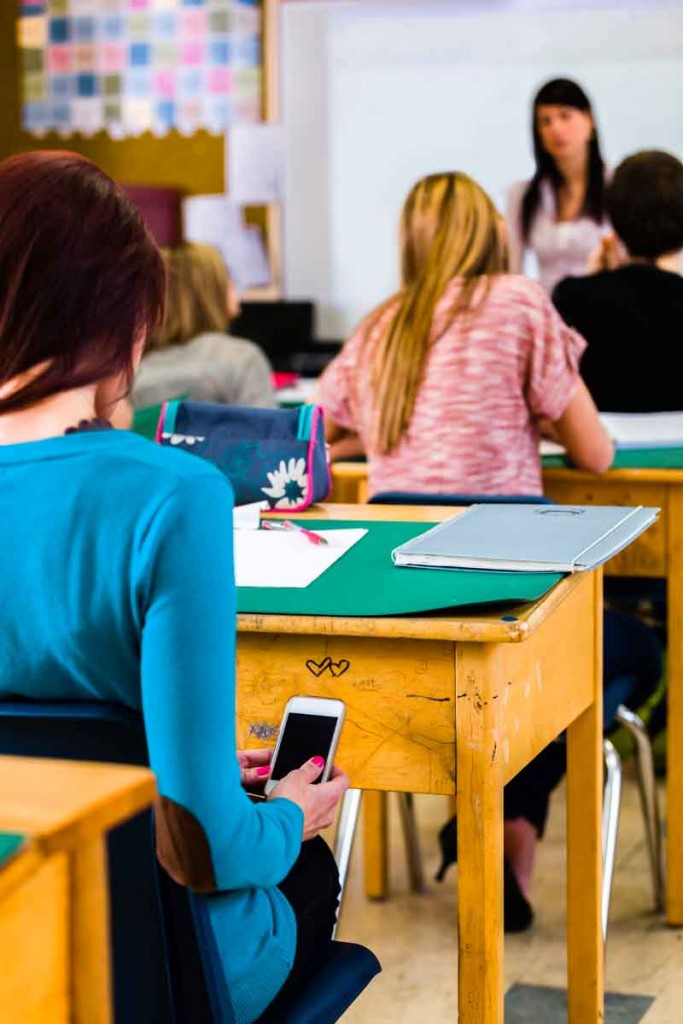Hi-Tech Cheating—Naperville's new academic integrity code aims to curb classroom cheating
By Kelli Anderson
View more Community
 Smart phones. Tablets. Laptops. The Internet. Not only has education become more complicated thanks to the ever-changing landscape of technology, new methods of teaching, and evolving goals for learning, but cheating has become a complicated concept difficult for some students to understand and necessary for our schools to better define.
Smart phones. Tablets. Laptops. The Internet. Not only has education become more complicated thanks to the ever-changing landscape of technology, new methods of teaching, and evolving goals for learning, but cheating has become a complicated concept difficult for some students to understand and necessary for our schools to better define.
Three years ago, Naperville School District 203’s need for a revised policy on cheating became readily clear when Naperville North and Central High School students, faculty, and parents participated in an international survey about student cheating conducted by Rutgers University. The results confirmed what officials had long suspected: There was a significant gap between how adults and students defined and understood cheating.
“Kids didn’t understand our expectations and how serious it is, and we realized that we weren’t preparing them for college where they take it very seriously and consequences are huge,” explains Kevin Pobst, principal of Naperville North High School. “We needed a document to teach from and needed greater definition.”
Technology and Cheating
Technology has introduced a myriad of challenges in the classroom. For example, in the past, teachers often used tests from the textbook, but today textbook tests are nearly always posted online, or can be photographed with a smart phone and shared in an instant with students around school. As a result, teachers now must devise their own tests and change them for each class to ensure that even if a test is photographed, it will not result in an advantage for those taking it later.
Revised Academic Integrity Code
After 2 ½ years of research and extensive collaboration, the new academic integrity code was introduced this fall. “In my opinion, the most significant thing that has happened is we gave this topic more attention like never before in my 18 years here,” said William Weisbrook, principal of Naperville Central High School. “Now there’s more clarity and detail regarding what constitutes cheating and different kinds of consequences. I think that’s a good thing—a healthy thing.”
The comprehensive, three-page document, defining both intentional and unintentional cheating, plagiarism, and giving unfair advantage, underscores the foundations of responsibility, fairness, respect, trust and honesty. Unlike the previous policy’s one-size-fits-all consequence, it outlines three levels of consequences in recognition that not all infractions are created equal.
Another change in the academic integrity code is the emphasis on communication between teacher and student and the recognition that it is the responsibility of both to make sure that expectations are clearly understood. “Teachers need autonomy for the most part because each course and project is different and a teacher’s intentions can be different with each assignment or take home test,” Weisbrook explains.
Many parents and students view the new code as a positive move. “In my daughter’s case, the code provided an opportunity for her teachers to have a better understanding of the productive, honest work students are doing both in and out of the classroom,” says Dee Dauber, parent of a Naperville high school student and president of Naperville North High School Home and School Association. “I believe the students are taking the code seriously.”
The new integrity code is a living document that will continue to evolve as learning and technology continue to change.
“In the end, our goal is to produce more students who understand the value of creating their own work,” says Jeffry DiOrio, dean of students at Naperville North High School. But while many do understand that value, many others, he contends, under the pressure of high demands, were taking “shortcuts” while others, used to engaging their friends in new ways with technology, really did not understand what cheating is. “We are hoping that defining what cheating is/isn’t and outlining the consequences of each level of cheating, that we can create more academically honest students than before,” said DiOrio.


